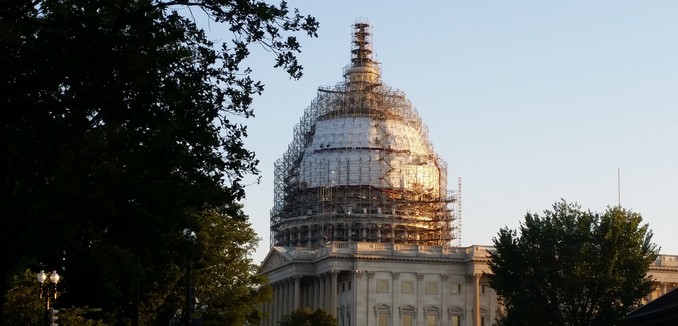President Barack Obama is facing growing bipartisan pressure from lawmakers opposed to giving Iran further sanctions relief under the guise of adhering to the “letter and the spirit” of last year’s nuclear deal, Associated Press diplomatic reporter Matt Lee wrote in an analysis published Monday.
While many international sanctions on Iran have been lifted due to the nuclear deal, there are still uncertainties as to whether foreign companies would face American penalties for trading with the Islamic Republic. This has caused numerous firms to wait for clarifications before stepping up such commercial dealings.
At issue are not just American sanctions over Iran’s support of terrorism, ballistic missile program, and human rights abuses, but also its the ability to use U.S. dollars in transactions with third parties due to Iran’s risk for money laundering and terror financing.
On the one hand, Iran is claiming that “the economic boon [it received from sanctions relief] isn’t enough because of remaining U.S. economic penalties for its other behavior,” leading some Iranian officials to threaten to abandon the deal. Meanwhile, European and Asian nations want clarifications on the current regulations in order to allow their businesses to profit from the newly allowed commercial ties with Iran without risking U.S. penalties.
However, Middle Eastern countries including America’s Gulf allies and Israel have argued that Iran remains dangerous despite the deal, pointing to its “continued testing of ballistic missiles as well as its ongoing support for Lebanon’s Hezbollah movement, Syrian President Bashar Assad’s government and Yemen’s Houthi rebels.”
Given these ongoing threats from Iran, American lawmakers continue to oppose the administration’s proposal to allow Iran access to the U.S. dollar and indirect access to the U.S. financial system. “Allowing Iran to access the U.S. dollar would be seen as additional concessions and rewarding poor behavior,” Rep. Grace F. Napolitano (D – Calif.) said in a statement last Wednesday. “Iran does not deserve this benefit, which I am worried could be used to further finance global terror.” Sen. Michael Bennet (D – Colo.) also expressed his opposition, writing, “The Treasury Department should not allow Iran to conduct business with the U.S. dollar. At a time when Iran is funding terrorism across the region, pursuing a destabilizing ballistic missile program, and threatening Israel’s existence, the Administration should not consider allowing it access to our financial system.”
Opposition from members of Congress from both parties has been building over the past two weeks. Chairman of the House Foreign Affairs Committee Ed Royce (R-Calif.) asserted in The Washington Post that Iran is “demanding additional concessions — above and beyond the [nuclear] agreement — in return for nothing.” He continued, “That’s why I’m working with colleagues on both sides of the aisle on legislation to put in place strict statutory prohibitions to keep Iran from receiving the benefits of accessing the U.S. financial system.” Senators Marco Rubio (R-Fla.) and Mark Kirk (R-Ill.) introduced a new bill prohibiting Iran from gaining access to the U.S. dollar last Wednesday.
However, according to the AP, administration officials argued that the U.S. must live up to the “‘letter and spirit’ of the sanctions relief” as part of the nuclear deal.
Addressing this point, Sen. Ben Cardin (D – Md.), the ranking member on the Senate Foreign Relations Committee, said last week that he won’t “allow Iran to determine what is in compliance with the JCPOA [the nuclear deal]… We will use the international standards but we will not use an Iranian standard.”
In a similar vein, an editorial in The Washington Post last week questioned why the U.S. should “take steps not strictly mandated by the text of the nuclear accord at a time when Iran is testing nuclear-capable missiles?”
[Photo: soccerdhg / Flickr ]




